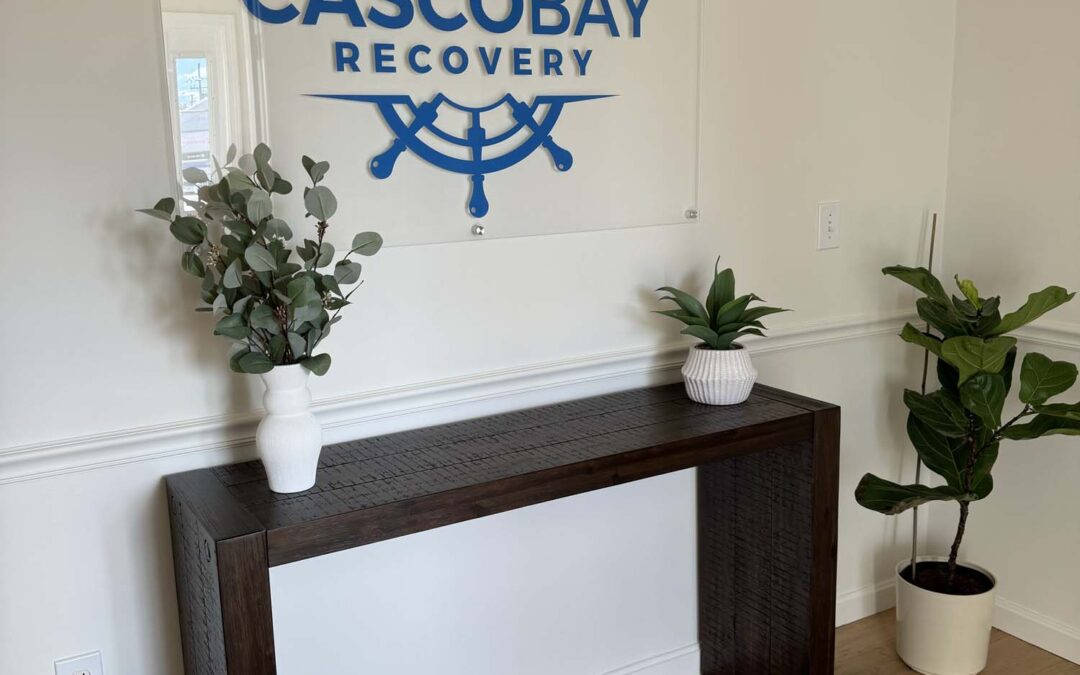Addiction is a complicated disorder that affects people of all ages, genders, and backgrounds. It causes significant impairment including the development of health issues, and failure to meet obligations at school, work, or home, and is linked to the development or worsening of mental health disorders. While there is no one-size-fits-all solution for addiction treatment, many people who struggle with addiction can benefit from holistic therapies.
A holistic approach to addiction treatment means treating the whole person, not just the addiction. In treatment, patients can expect to participate in a number of therapeutic interventions that address their mental health and emotional wellbeing in different ways.
In conjunction with other therapies such as individual psychotherapy, group therapy, and family therapy, complementary addiction therapies help many patients with the mental, social, emotional, and physical consequences of addiction.
One such therapy that can complement your overall addiction treatment program is equine therapy. Currently, we do not offer equine therapy as an option at our Portland location, but as addiction treatment specialists we can appreciate the value it brings to a treatment program.
At Casco Bay, we help our members overcome addiction and become their best selves through a range of therapy options. If you require substance abuse treatment in Maine, we are here to help you achieve the emotional and psychological balance needed to maintain long-term sobriety and wellness.
What Is Equine-Assisted Therapy?
Equine-assisted therapy for addiction treatment is a form of therapy involving horses. While this may seem like a highly unconventional type of treatment, equine-assisted therapy has risen in popularity since its inception. Today, many people are benefiting from this type of therapy, as it can offer a number of advantages.
This type of therapy goes beyond the luxuries of horseback riding, which is only a part of equine therapy. Patients who engage in equine therapy also participate in other horse-related activities. This can include the completion of responsibilities such as grooming, feeding, and otherwise caring for the horses.
The use of horses in a therapeutic setting helps promote emotional growth and personal development in people who are recovering from drug addiction. Working with horses can be a beneficial component of an addiction treatment program. Further, patients who would benefit from holistic therapies, such as equine therapy, can find relief and healing from their addiction through this type of care.
How Equine Assisted Therapy Aids Addiction Treatment

Horses are highly intelligent and intuitive animals. They are sensitive to a person’s mental and emotional state. Often, they will respond to a person’s emotions in a way that mirrors what the person is feeling.
Therefore, a horse can have a behavioral reaction that is dependent on the mood of the person who is working with it. For example, if a person is feeling angry, the horse may act out in an angry manner. If the person is feeling scared, the horse may become skittish.
This reflection can aid those in addiction treatment who struggle to maintain a calm state of being. Many addiction treatment patients find that they are able to develop self-awareness through the interactions they have with a horse during equine-assisted therapy.
Moreover, people who are in an addiction treatment program are able to benefit from the mental relief, resolve-building, and spiritual empowerment that comes with working with horses. Equine-assisted therapy can also address the following in addiction treatment patients:
- Issues maintaining or building boundaries
- Anxiety and depression
- Communication skills
- Focus and self-discipline
- Physical and emotional awareness
- Coordination, posture, and balance
- Overall outlook and attitude
- Teamwork and collaboration
- Memory skills
When working with horses, patients are required to be intentional with how they treat the horses. This is because horses demand respect to build trust. The expectations of the horse create a sense of responsibility.
By working with and gaining the trust of a horse, substance abuse patients can cultivate the responsibility, self-discipline, and patience that they may be missing in their lives.
What Does Equine Therapy Entail?
Equine therapy involves more than riding, grooming, and feeding horses. During each session, the supervising therapist will set goals that the patients must meet. For example, one session can consist of a patient successfully leading a horse from one spot to another. These activities help patients work on anger management, social skills, and communication.
After completing horse-related tasks, patients will discuss the thoughts, feelings, and emotions that came up while engaging with the horse. This helps patients to be present at the moment when working with the horses and to understand how their thoughts and emotions affect their behavior. Additionally, patients will work on communication by collaborating with the horse’s handler.
Who Is a Good Candidate for Equine-Assisted Therapy?
You may be wondering if you are a good candidate for equine therapy. The truth is, that almost anyone can benefit from this type of therapy as long as they are open to working with large animals.
Moreover, equine-assisted therapy has been shown to be an effective treatment for a variety of mental health conditions, including the following:
- Anxiety disorders
- Depression
- Post-traumatic stress disorder (PTSD)
- Substance abuse disorders
- Eating disorders such as anorexia or bulimia
- Behavioral issues such as excess aggression
- Attention deficit hyperactive disorder (ADHD)
But, there are some people who may benefit more from equine therapy than others. People who are seeking treatment for addiction or mental health disorders that have caused them to feel isolated and alone often find the most success with this type of therapy. This is because equine-assisted therapy can help them to build trust, confidence, and communication skills.
If you are interested in making equine-assisted therapy a part of your treatment plan, it is important to talk to your therapist or treatment team about whether this type of therapy would be a good fit for you. They will be able to help you determine if you are a good fit for this type of therapy and will make sure that you are getting the most out of your sessions.
The Benefits of Equine Therapy
Equine therapy is beneficial for addiction treatment patients in many different ways. Working with horses is proven to help build a number of skills that are required for relationship building, interacting with others, and maintaining trust. The skills that equine-assisted therapy aid in developing include the following:
- Balancing internal feelings
- Improving confidence and assertiveness
- Developing an understanding of boundaries
- Becoming more resilient and focused
- Learning critical non-verbal communication skills
- Feeling connected and needed
- Banishing negative emotions
- Fostering positive emotional growth
- Relaxing and being present in the moment
The benefits of equine therapy also extend to helping patients build their diminished sense of self-confidence. As patients form bonds with horses, build trust, and gain unconditional love, they can experience a sense of accomplishment. This sense of accomplishment can be a stepping stone to help patients tackle other goals in their life, such as conquering their addiction.
Equine Therapy and Behavioral Health
 One of the key components of addiction treatment is the management of behavior. Alcohol and drug addiction can cause or exacerbate behavioral issues in people who abuse substances. The maladaptive behaviors often put the individual as well as their families and friends at risk.
One of the key components of addiction treatment is the management of behavior. Alcohol and drug addiction can cause or exacerbate behavioral issues in people who abuse substances. The maladaptive behaviors often put the individual as well as their families and friends at risk.
By working with horses, patients in addiction treatment can learn how to manage their behaviors. Horses are sensitive to mood, vocal tones, and body language. This biofeedback of sorts enables those in recovery to gain insight into their own state of being.
Subsequently, they can learn how to control their emotions and impulses, and learn how to communicate effectively. These skills are essential for managing addiction and for living a sober life.
In addition, equine therapy provides a sense of purpose to individuals who take part in this type of therapy. Having a sense of purpose can help replace the need to turn to drugs or alcohol. Those in addiction recovery can learn how to care for horses and can feel a sense of responsibility and ownership through this process.
Are You Interested in Learning More About Addiction Therapy?
We offer many evidence-based forms of treatment for addiciton at Casco Bay Recovery. While equine therapy is not currently something we offer, we understand the value it can provide in addiction recovery. We do, however, provide a long list of additional therapy options including yoga therapy, music therapy, individual psychotherapy, experiential therapy, cognitive behavioral therapy (CBT), and many more.
We are a leading addiction treatment center in Portland, Maine that is dedicated to helping our clients achieve long-term sobriety. With our help, you can overcome your addiction and build a foundation for a healthy and happy future.
We believe in treating the whole person, not just the addiction, and our team is dedicated to helping you heal physically, mentally, and emotionally. To learn more about our therapy offerings and addiction treatment programs, contact us today. We can help you discover a new path to recovery.








